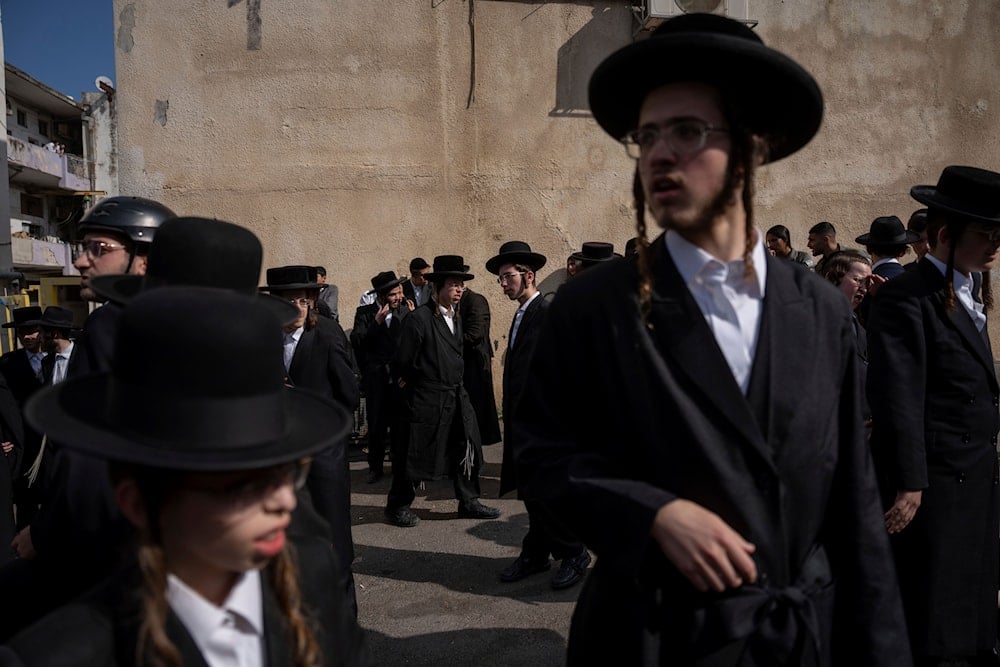War, Haredi draft challenge 'Israel's' stability: Israeli media
With the US presidential election only days away, US diplomats are stepping up their efforts in the region, and Israeli leaders are holding emergency late-night discussions.
-

Ultra-Orthodox Jewish men attend a protest against a potential new draft law that could end their exemptions from military service in occupied al-Quds, October 31, 2024. (AP)
An analysis published on the Israeli website Haaretz on Thursday revealed the challenging situation "Israel" faces as it manages wars on two fronts — Lebanon and Gaza — amid potential ceasefire negotiations.
Despite hopeful signs, significant obstacles persist, particularly in the indirect talks with Hamas, writer Amos Harel says.
Israeli Security officials are reportedly advocating for an agreement on both fronts, claiming that military objectives have largely been met, but diplomatic breakthroughs remain elusive.
With the US presidential election only days away, US diplomats are stepping up their efforts in the region, and Israeli officials are holding emergency late-night discussions.
According to Harel, there is cautious optimism for an agreement with Hezbollah in Lebanon. But a ceasefire with Hamas remains complex, as neither Israeli Prime Minister Benjamin Netanyahu nor his hardline coalition appears eager to make concessions, despite the ongoing situation with captives.
Read more: US-Israeli proposals do not include permanent ceasefire: Source
Discontent among draftees
The analysis also highlights internal strains within "Israel" as the wars continue.
The longstanding exemption of ultra-Orthodox (Haredi) men from military service has stirred resentment, particularly among religious Zionist communities, who have borne a disproportionate share of losses.
The regime's coalition partners from Haredi parties continue to push for legislation enshrining draft exemptions, a stance that is sparking public backlash and resentment from Israeli Occupation Forces (IOF) reservists who bear the brunt of military service.
A senior IOF officer cited frustration among soldiers, particularly religious Zionist combat troops, over what they view as an unfair distribution of service burdens, and directed their anger toward Netanyahu’s government and its Haredi-aligned ministers.
"The burden of service is clear everywhere. In every visit in Lebanon or Gaza, we meet soldiers who have served 200 and even 300 days or more in the reserves since the beginning of the war," he told Haaretz.
Read more: Three Israeli police injured in Haredi anti-draft protest in al-Quds
To address this strain, the IOF recently began issuing limited draft notices to Haredi men, but the response has been lackluster, with only a fraction reporting to recruitment offices.
Critics argue that the occupation's unwillingness to enforce conscription among Haredi communities undermines both the IOF's operational readiness and public morale during a period of heightened military need.
According to Haaretz, these dual challenges — stalled ceasefire talks and internal societal divisions — could affect "Israel’s" stability as it balances a multi-front war with growing internal unrest.

 3 Min Read
3 Min Read








